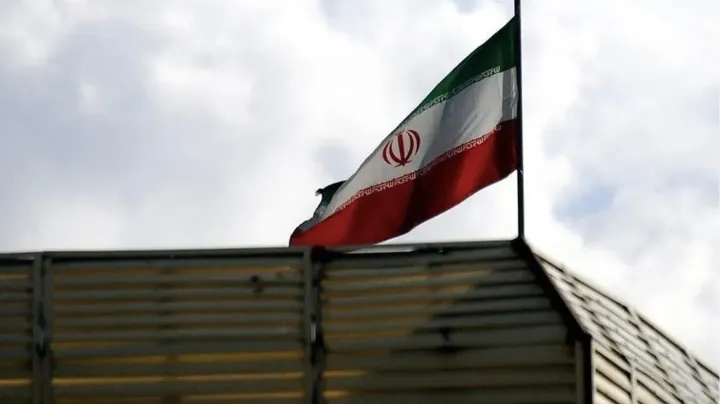Chinese President Xi Jinping unveiled the Global Governance Initiative (GGI) at the recent Shanghai Cooperation Organisation (SCO) Summit, presenting it as a new framework for fairer and more inclusive international cooperation.
Positioning itself as both a 'reformer' and a 'protector' of global order, China presents GGI as the fourth major foreign policy pillar after the Global Development Initiative, the Global Security Initiative and the Global Civilization Initiative.
Amidst geopolitical uncertainty and a decline in confidence in established power structures, China has presented its vision for a more equitable world in the form of an initiative.
The GGI redefines the principles that underpin international engagement. Five core concepts underpin this approach: sovereign equality, respect for international law, genuine multilateralism, a people-centred approach and a commitment to practical outcomes.
RelatedChina’s long game: Is China shaping a new world order? - TRT World - TRT World
According to the Chinese Ministry of Foreign Affairs, these ideas are not intended to replace the current system, but rather to improve it by making global institutions more representative, responsive and equitable.
The GGI aims to modernise the world’s institutional system by moving it away from unilateralism and ideological confrontation.
The introduction of the GGI reflects an acknowledgement that the existing order, largely shaped after World War II, is no longer capable of managing today's complex global challenges.
Global challenges such as climate crisis, digital governance and economic inequality demand cooperation and reform.
China’s message is that no single country should dominate the reform process and that all states, regardless of their size or wealth, deserve a say in shaping global outcomes.
A timely intervention
The timing of the GGI’s launch is significant. 2025 marks the 80th anniversary of the UN, offering a chance for global reflection.
The emergence of the GGI highlights the deeper truth that the world’s post-war institutions are no longer fit for purpose.
As emphasised in this book by a Turkish academic, the frameworks that were established after 1945 and once celebrated as guarantors of peace and prosperity are now struggling to cope with the multifaceted crises of the 21st century.
The UN Security Council, for example, is frequently paralysed by the veto power of its five permanent members, preventing it from addressing major conflicts such as Russia’s war with Ukraine and Israel’s genocide in Gaza.
This has fuelled global frustration and revived calls for reform.
Turkish President Recep Tayyip Erdogan has long argued that the UN must evolve beyond the narrow authority of its founding powers, famously stating that "the world is bigger than five".
His critique finds resonance in China’s GGI, which also seeks to establish a more inclusive and representative system.
RelatedTRT World - Beijing’s alternative world order: Multilateralism as China’s answer to the US
Once the core of global economic cooperation, the WTO has lost influence amid major power disputes and its failure to update trade rules.
Meanwhile, the collapse of key arms control treaties such as the INF and the erosion of non-proliferation accords have raised fears of a new arms race.
Against the backdrop of a leadership and legitimacy vacuum, China’s GGI is gaining relevance by promoting renewed dialogue and shared security as an alternative to Cold War–style rivalries.
The political symbolism is equally clear. The United States continues to withdraw from global commitments under President Donald Trump’s America First policy.
As Washington retreats, Beijing steps forward. The GGI is a calculated response to the vacuum in global leadership, particularly within institutions that were once led by Western powers.
The initiative “does not seek to create an alternative system” but rather aims to strengthen the mechanisms of the current global order by addressing three key issues: the underrepresentation of the Global South, the erosion of the UN’s authority, and implementation inefficiency.
The message is that global governance can not remain the privilege of a select few, but must evolve to reflect the current multipolar reality.
A regional strategy for China
The GGI is not only a global vision, but also a regional strategy. In Asia, where China faces both opportunities and constraints, the initiative could transform the nature of Beijing’s relations with its neighbours.
For Southeast Asia, the GGI provides a framework that emphasises cooperation and consultation over dominance. By presenting governance as a collaborative process rather than a competition, the GGI could help Beijing address concerns about its rise.
In Central Asia, the initiative complements China’s long-term economic presence through the Belt and Road Initiative (BRI). The two projects are intertwined, with the BRI focusing on infrastructure and the GGI focusing on institutions.
This enables Beijing to present itself as a collaborative and developmental leader, thereby consolidating its influence through dialogue and economic interdependence.
And Russia's support for the GGI is noteworthy, as it aligns with Moscow’s vision of a multipolar world order and reinforces China’s regional and global initiatives within this emerging partnership.
The GGI can not be understood in isolation. Rather, it forms part of a broader ideological framework that connects China’s key diplomatic and development initiatives within the structure of its grand strategy.
While the BRI focused on physical connectivity, the GGI represents conceptual connectivity. It is an attempt by China to construct a moral and institutional infrastructure that will legitimise its leadership.
While the BRI connects economies, the GGI connects values. Both initiatives aim to bind countries into networks of interdependence, albeit with an explicit focus on governance, sovereignty and mutual respect.
For Beijing, the success of the GGI hinges on its capacity to transform rhetoric into reciprocity. The initiative’s long-term goal is to define global norms, rather than merely adhere to them.
US and China’s competing visions
The GGI has clear implications for the competition between the US and China. In Washington, it has been interpreted as a challenge to the liberal order established after 1945.
However, viewing China as an existential threat is more “political alarmism than sober analysis”.
Rather than seeking to dismantle the existing system, the GGI presents itself as an effort to reshape global priorities toward greater balance and mutual benefit
While the US promotes a world divided between democracies and autocracies, China presents the GGI as an inclusive model that rejects ideological confrontation.
Beijing’s emphasis on sovereignty and development appeals to many countries that have become sceptical of Western conditions and double standards.
For the Global South, the initiative's focus on fairness and reform strikes a chord, particularly in the context of ongoing humanitarian and economic crises.
The GGI reveals a key contradiction in China’s global stance. Although Beijing advocates equality among nations, it continues to assert power through its actions in the South China Sea and by expanding its political influence across the region.
This discrepancy between principle and practice poses the greatest threat to the credibility of China’s leadership model.
Nevertheless, the growing reception of the GGI suggests that Beijing has successfully positioned itself as an alternative center of legitimacy.
It offers developing nations a vision of cooperation independent of ideological alignment, a stark contrast to the Western approach, as they perceive it, of favouring select countries.
Implications for Türkiye
The GGI brings both opportunity and uncertainty for Türkiye. As a country at the meeting point of Europe and Asia, and as a dialogue partner within the SCO, Ankara is in a unique position to understand and engage with China’s vision.
Türkiye has long called for the UN Security Council to be reformed and for greater equity in global decision-making.
The GGI’s principles of sovereign equality and fair representation, therefore, align with these aspirations. By cooperating with China within this framework, Türkiye could enhance its influence within international institutions, particularly in areas such as development, digital governance, and climate action.
In economic terms, the GGI could complement existing Sino-Turkish ties under the BRI.
The governance agenda could facilitate the expansion of joint projects in technology, energy transition and digital connectivity. Both countries are interested in strengthening South–South cooperation and diversifying their diplomatic portfolios amid shifting global alliances.
However, engaging with China in the context of the GGI also requires careful calibration. Given its deep institutional relations with NATO and the EU, Ankara seeks to maintain a balanced approach that safeguards its strategic autonomy while exploring areas of cooperation with Beijing.
Although both China and Türkiye advocate a more "just world order", their approaches differ.
Türkiye's narrative is rooted in civilizational pluralism and Islamic humanitarianism, whereas China's draws on Confucian and socialist traditions.
These ideological differences could become apparent as the GGI evolves.
Therefore, Ankara’s challenge is to engage with emerging structures like the GGI in a way that preserves its strategic autonomy and complements its existing multilateral partnerships.
In brief, the GGI calls for reforming the rules of the international system, implicitly presenting China’s initiative as the model for such reform.
For Asian and Global South countries, it offers an opportunity to influence the future rather than simply adapting to it.
For the US and its allies, it signifies a shift in the intellectual centre of global discourse, from the Atlantic to the Pacific, and from liberal internationalism to what Beijing terms “shared destiny”.
For Türkiye, the GGI opens up a strategic space for engagement on its own terms, an opportunity to strengthen its multilateral influence while maintaining independence in an era defined by great power competition.
As the UN enters its ninth decade, the world must choose between clinging to an outdated system and participating in its renewal.
Whether the GGI will form the basis of this renewal depends not only on China’s aspirations but also on other nations' willingness to collaborate in shaping a fairer, more inclusive order.
























